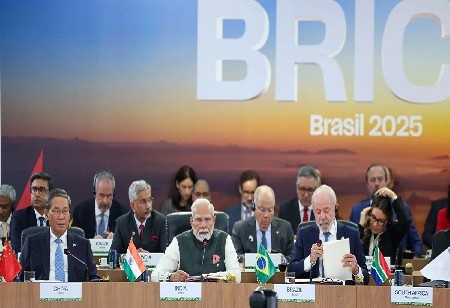
In a strong message to the European Union, BRICS countries have collectively rejected the EU’s Carbon Border Adjustment Mechanism (CBAM), calling it a unilateral and discriminatory trade measure.
In a joint statement from the BRICS climate and environment ministers, they condemned the carbon border tax as protectionist and cautioned that it would put inappropriate burdens on developing economies.
The CBAM will start to impose carbon-linked tariffs on imports of emissions-intensive goods, such as steel, cement, fertilizers, and aluminum in 2026. The EU contends that it is part of its green transition and is being implemented to promote sustainability and accountability on carbon. BRICS reads the mechanism as contrary to principles in global trade that emphasizes equity between developed and developing countries as well common but differentiated responsibilities under the United Nations Framework Convention on Climate Change (UNFCCC) and World Trade Organisation (WTO) initiatives.
This move has raised alarms across manufacturing and export-heavy sectors in countries like India, Brazil, and China. The carbon levy could have competitiveness implications, disrupt current and future green investment opportunities, and the uncertainty could provoke trade tensions while there are broader global efforts to decarbonise supply chains.
Also Read: Industrial India Turns to Solar for Cost Cuts and ESG Compliance
BRICS instead has called for developed countries to responsibly finance their climate finance commitments ($100 billion a year until 2025, which will increase to $300 billion by 2030) to assist clean transitions in the Global South.
The standoff underscores the growing divide over climate-linked trade policies and their implications for emerging markets.
We use cookies to ensure you get the best experience on our website. Read more...